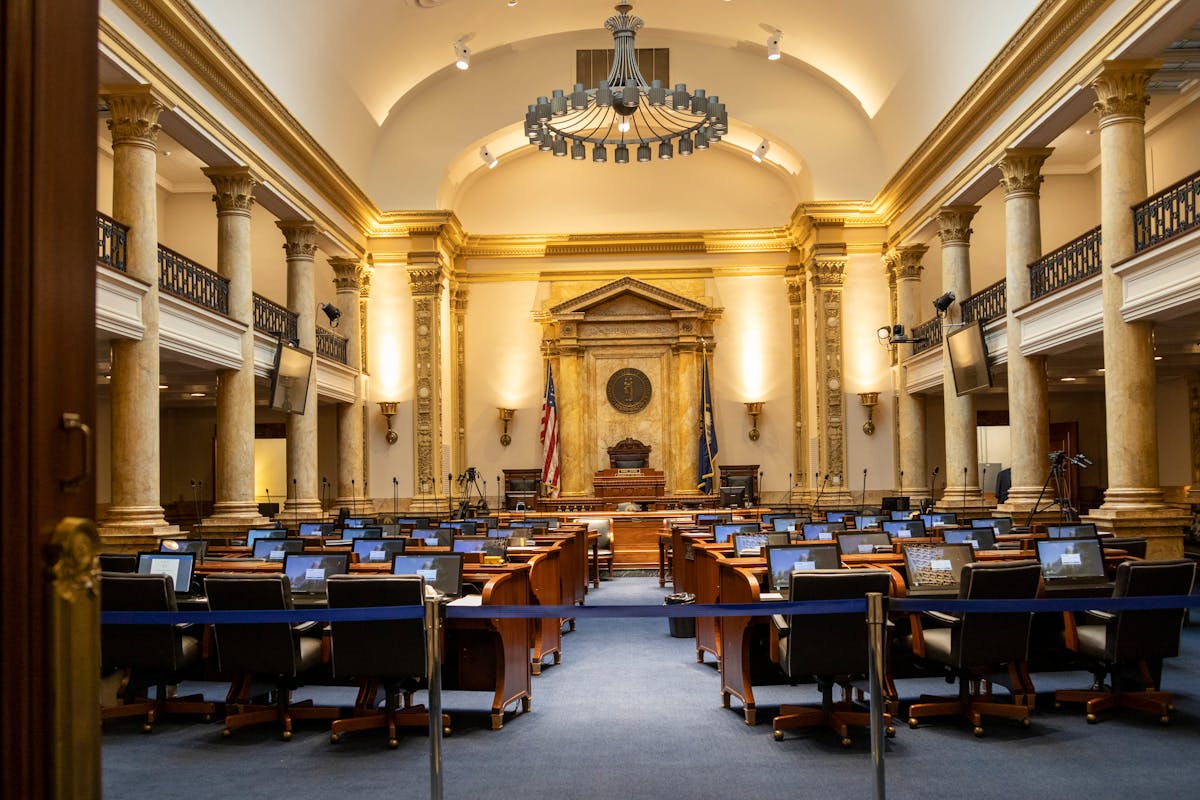Supreme Court: You Can’t Fire an Employee for Orally Complaining About Not Being Paid Overtime – Riggan Law Firm, LLC
The Supreme Court’s ruling, as highlighted by Riggan Law Firm, LLC, that employees cannot be terminated for verbally expressing concerns about unpaid overtime, is a significant milestone in labor law. This decision has profound implications for employee rights and employer responsibilities under the Fair Labor Standards Act (FLSA). It raises intriguing questions about the dynamics of workplace communication and the balance of power between employers and employees. What does this mean for the future of labor rights? How might this impact your workplace? Let’s explore these questions together.
The Supreme Court Ruling
In a landmark ruling, the Supreme Court greatly underscored the rights of employees concerning overtime complaints. This decision has set a precedent that emphasizes the importance of protecting employee rights, particularly in cases relating to overtime disputes.
The Supreme Court, in its ruling, held that the verbal complaints of employees about overtime pay are as valid as written complaints. This ruling is significant because it broadens the scope of protection for employees under the Fair Labor Standards Act. Essentially, the Supreme Court has interpreted the law to mean that employees who voice their concerns about overtime pay cannot be dismissed or retaliated against by their employers.
This Supreme Court decision is a significant development in the field of labor law. It underscores the court’s commitment to uphold employee rights and signals a broader interpretation of labor laws, offering more extensive protections to workers. The ruling also provides employees with a sense of security, knowing that their rights are being upheld at the highest level of the judiciary.
Understanding Overtime Rights
A vast majority of employees are covered by overtime laws, yet not all possess an extensive understanding of their rights. To clarify, overtime eligibility typically applies to employees who work over 40 hours in a single workweek, but it is vital to note the Fair Labor Standards Act (FLSA) excludes certain types of employees from these regulations.
Understanding employee rights in relation to overtime is essential. To begin with, eligible employees are entitled to receive one and a half times their regular pay rate for hours worked beyond the standard 40-hour week. Furthermore, these rights cannot be waived, even by mutual agreement between employer and employee. Additionally, employers are obligated to maintain accurate records of hours worked and wages paid.
In the event of overtime pay disputes, employees possess the right to file a complaint with the Wage and Hour Division or in court. Importantly, the Supreme Court ruling has reinforced that employees can’t be terminated for voicing such complaints. Hence, a well-rounded understanding of overtime rights is not only beneficial but necessary for employees to protect themselves in the workplace.
The Significance of Oral Complaints
The significance of oral complaints in the context of employee rights on overtime cannot be underestimated. These complaints, when articulated, serve not only as a medium for employees to voice their grievances, but also as a potential trigger for legal protection mechanisms within the employment law structure. As we examine the impact of oral complaints and the legal protections they may instigate, it is vital to comprehend their role and their potential effects on both employees and employers.
Impact of Oral Complaints
Given the recent Supreme Court rulings, oral complaints now hold significant weight when it comes to employee rights on overtime complaints. This newfound significance is not only transforming the landscape of employee rights but also reconfiguring dynamics in the workplace, particularly in the areas of employee morale and workplace communication.
The impact of oral complaints on employee morale is multifaceted. On one hand, it empowers employees, providing them with a platform to voice their concerns and dissatisfaction, thereby enhancing their sense of agency and motivation. On the other hand, it also poses challenges for employers who must now manage these complaints with increased sensitivity and fairness to maintain workplace harmony.
In terms of workplace communication, oral complaints demand a more open and transparent dialogue between employees and management. Employers are now compelled to listen more attentively to their employees’ concerns and respond in a manner that is both fair and respectful. This shift can improve the overall communication climate, fostering an environment where employees feel heard and valued. However, it also necessitates that employers adapt their management strategies to adequately address and resolve such issues in a timely and efficient manner.
Legal Protection for Employees
Justice, in its most thorough form, has witnessed a significant evolution with the recent Supreme Court rulings that now predicate legal protection for employees on the basis of oral complaints. This shift has profound implications for both workplace fairness and employee rights, fundamentally altering the dynamics of employer-employee relations.
Employees are no longer strictly bound by the formal complaint procedures to invoke their rights. Their oral complaints, irrespective of their formality, can now serve as a valid basis for legal protection. This recognition is important as it:
- Empowers employees, fostering a culture of openness and dialogue.
- Guarantees expedited resolution of issues, as formal procedures can be time-consuming.
- Encourages workplace fairness by holding employers accountable.
The Supreme Court’s decision has bridged a critical gap in the protection of employee rights, adding a new dimension to workplace fairness. It underscores the significance of oral complaints, positioning them as legitimate and legally valid expressions of employee discontent. This ruling reaffirms the commitment to justice in the workplace, pushing the boundaries of legal protection for employees, and setting a precedent for future workplace disputes. The implications of this ruling are far-reaching, offering employees a more accessible avenue for voicing their grievances.
Impact on Employee Protections
A seismic shift in labor law, the recent Supreme Court ruling on overtime complaints profoundly influences employee protections. This landmark decision considerably bolsters employee advocacy by legitimizing oral complaints about overtime pay as protected activity.
The ruling is a considerable step towards workplace fairness, as employees can now voice their grievances about unpaid overtime without fear of retaliation. It serves to empower employees by recognizing their right to vocalize concerns about their wage conditions, thereby promoting transparent and open communication in the workplace. This also puts an onus on employers to guarantee that they are responsive to these complaints, further safeguarding employees’ rights.
This ruling also impacts the broader labor law landscape by strengthening the legal mechanisms that protect employees from unfair labor practices. It solidifies the role of the court in guaranteeing that the rights of employees are upheld, regardless of the mode of their complaint.
Implications for Employers
The Supreme Court ruling on overtime complaints presents a myriad of implications for employers, necessitating a reevaluation of their current practices and policies. The decision underscores the importance of fostering a culture of transparency and encouraging open communication. This allows for the creation of an environment where employees feel safe to voice concerns without fear of retaliation.
In light of this ruling, employers must:
- Enhance their communication strategies to guarantee that employees understand their rights and the avenues available to them should they need to voice dissatisfaction about overtime payment. Employers should also guarantee that mechanisms for feedback are easily accessible and responses timely.
- Foster a culture of employee accountability where staff members are aware of their rights and responsibilities. This includes understanding the rules surrounding overtime and how to properly report any discrepancies.
- Update their human resource policies to reflect the Supreme Court ruling. This should include clear guidelines on how to handle complaints about overtime, disciplinary procedures, and protection against retaliation for employees who raise such issues.
Exploring Legal Precedents
While delving into the legal precedents set by the Supreme Court ruling on overtime complaints, one finds a rich tapestry of decisions that have shaped the current landscape of employee rights. The case law concerned with employment issues has continuously evolved, often in response to societal demands for fairness and equality in the workplace.
One such precedent, the Fair Labor Standards Act (FLSA), established over eight decades ago, has been instrumental in setting standards for wage and hour protections. The FLSA lawsuit of Kasten v. Saint-Gobain Performance Plastics Corporation, in which the Supreme Court ruled in favor of an employee who orally complained about overtime pay, is an example of the court’s commitment to upholding employee rights.
This decision, along with other similar case law, has underscored the importance of employees’ rights to voice their concerns without fear of retaliation. The Supreme Court’s ruling on this matter has set a significant precedent, amplifying the voice of the employee in matters related to fair compensation.
In essence, these legal precedents reflect the dynamic nature of employment law, which continues to evolve in response to changing workplace realities, always with an eye towards the protection of employee rights.

Future Predictions for Labor Rights
As we shift focus to the future of labor rights, three essential areas warrant attention: the evolution of these rights, potential modifications to overtime pay, and advancements in workplace protections. Each area presents unique challenges and opportunities that will influence the trajectory of employee rights. With a keen understanding of current trends and legal precedents, we can formulate insightful predictions and analyse potential implications for both employees and employers.
Evolution of Labor Rights
Labor rights’ evolution, particularly in relation to overtime complaints, paints a fascinating picture of the ongoing struggle for worker protections. This journey has been shaped by a myriad of influences, including labor movements and worker solidarity, which have persistently pushed for greater recognition and protection of worker rights.
The most significant milestones in this evolution can be summarized as follows:
- Early Labor Movements: These movements were instrumental in laying the groundwork for labor rights. They championed for fair wages, safe working conditions, and reasonable hours, paving the way for overtime pay norms.
- Introduction of the Fair Labor Standards Act (FLSA): Enacted in 1938, the FLSA established minimum wage, overtime pay, recordkeeping, and youth employment standards. It was a pivotal step in defining and enforcing labor rights.
- Supreme Court Rulings: The Supreme Court has played an essential role in interpreting and upholding labor rights laws, including those related to overtime pay. Notable decisions, like the one discussed in this article, have set precedents for protecting worker rights against employer retaliation.
Worker solidarity and labor movements have been the backbone of this evolution, persistently advocating for fair treatment and compensation. The progress made is a reflection of their resilience and commitment.
Anticipated Overtime Pay Changes
The evolution of labor rights, particularly in relation to overtime complaints, sets the stage for an examination of future developments in this area. As overtime regulations continue to evolve, a significant shift is anticipated in the domain of overtime pay. Labor law experts predict further tightening of overtime pay rules to prevent exploitation and guarantee fair compensation.
An integral part of these changes is expected to be an increase in employee awareness. The Supreme Court ruling signifies a significant step forward in employee rights, signaling an era where employees are more cognizant of their rights and more confident in asserting them. This, coupled with stricter enforcement of regulations, is expected to lead to a decrease in overtime violations.
These anticipated changes are not without challenges. Employers will need to adapt to these new regulations and guarantee they are compliant, which may require investment in training and systems. However, the ultimate goal of these changes is to create a more equitable working environment. As the landscape of labor rights continues to evolve, one thing remains clear: the rights of employees, including their right to fair overtime pay, are being increasingly recognized and protected.
Workplace Protections Advancements
Given the trajectory of recent labor law reforms, it is reasonable to predict further advancements in workplace protections. This would entail greater emphasis on worker advocacy and a solidifying role of labor legislation in promoting employee rights.
The future of labor rights may be characterized by:
- Increased worker advocacy: Unions and worker’s rights groups will likely continue to gain strength and influence, advocating for policies that protect employees from unfair treatment, and guaranteeing their voices are heard in the halls of power.
- Strengthened labor legislation: As awareness about workplace exploitation grows, there’s an expectation for more robust labor legislation. This could involve laws mandating fair wages, defining reasonable hours, and protecting the rights of part-time and gig workers.
- Enhanced enforcement of existing laws: With the strengthening of legislation, it will be essential to guarantee these laws are enforced. This might mean more resources for labor departments, or stricter penalties for companies that violate labor laws.
These advancements should help to create a more equitable workplace environment, where employees are valued and their rights are respected.
Seeking Legal Help: Riggan Law Firm
In the landscape of overtime complaints and employee rights, professional legal assistance can be an essential ally. Guiding through the complexities of employment contracts, and advocating for employee rights can be arduous without expert guidance. Riggan Law Firm, with its profound experience and knowledge in labor law, provides a robust platform for employees seeking redress for their grievances.
The firm’s team of seasoned attorneys specializes in interpreting employment contracts. They meticulously analyze each clause and provision, ensuring that the rights and interests of employees are safeguarded. Their insight into the nuances of such contracts enables them to detect potential pitfalls, thereby empowering employees to make informed decisions.
In addition to contract interpretation, Riggan Law Firm champions employee advocacy. They provide a voice for employees who have been denied their rightful overtime pay, ensuring their complaints are heard and addressed. Their aggressive advocacy, coupled with their strategic legal approach, has yielded significant victories in overtime dispute cases.
Frequently Asked Questions
What Other Laws Protect Employees From Wrongful Terminations?
Several laws provide employee protections against wrongful termination, including the Civil Rights Act, Age Discrimination in Employment Act, and Americans with Disabilities Act. These prohibit termination based on race, age, or disability respectively.
How Is Overtime Calculated According to Federal Law?
Federal regulations determine overtime calculations. Employees working over 40 hours in a workweek must receive at least one and a half times their regular pay rate for the additional hours, as per the Fair Labor Standards Act.
Are There Any Exceptions to the Supreme Court Ruling?
No exceptions exist to this Supreme Court ruling. It affirms employee rights and legal protections, preventing retaliation for oral complaints about unpaid overtime, ensuring fair treatment in the workplace regardless of complaint medium.
Can a Company Appeal the Supreme Courts Decision?
A company can indeed appeal the Supreme Court’s decision. However, this process is complex and requires compelling evidence. The implications of this ruling substantially reinforce employee rights, specifically regarding overtime complaints.
Are There Specific Ways to Submit Oral Complaints for Them to Be Legally Recognized?
Yes, oral complaints should follow specific procedures to guarantee legal recognition. These typically involve reporting to a supervisor or HR, providing detailed information, and adhering to company policies, safeguarding employee rights in the process.






